The African continent has encountered numerous challenges in the past and continues to grapple with various socio-political and economic crises, conflicts, and obstacles that have far-reaching implications for its people, development, and regional stability. It was to this end that a geopolitics webinar was organised in commemoration of the African Union 60th Anniversary to shed light on the complexities of these issues, delve into their root causes from global to local perspectives, and discuss potential avenues for resolution and peacebuilding. Panel of experts shared comprehensive insights, research findings and analysis of the African Union and its management of continental conflicts and challenges within the context of the 21st century. The webinar provided a multidimensional understanding of the factors contributing to conflicts and the possibilities for sustainable solutions, writes Ngozi James and the GS Team.
Challenges facing the African continent
The African Union (AU), formerly known as the Organisation of African Unity (OAU), has reached a significant milestone as it commemorates its 60th anniversary. The organisation, born out of the aspiration for a united, prosperous, and peaceful Africa, has faced numerous challenges in fulfilling the vision of its founding fathers. As captured in its charter and vision; AU’s goal is for a united, prosperous, and peaceful Africa.
But, the ongoing conflicts, emerging security threats, political instability, and several military coups, among others in the continent continue to challenge and question the realisation of its vision. Despite some gains made so far, several analysts described the AU as a toothless bulldog, which has not been able to manage itself or the conflicts and crises between and among member states without foreign interference. Compared to the European Union (EU), the AU which preceded it has not achieved much in driving peace and development. The continent is still playing catchup whether in the global economy, governance, or politics to other regional and global powers, especially the US, China, India, EU, Russia, ASEAN bloc and others.
It was to this end that the inaugural edition of the webinar series on geopolitics was convened to examine the role of the AU as it celebrated its 60th anniversary. The webinar themed: “AU@60: The African Continent Conflicts in the 21st Century” and organised by the Centre for Media Development (CMD) in collaboration with Global Sentinel and Public Intel Security Africa, explored the dynamics of global affairs as they impact peace, security, economy, governance, and development, with a particular focus on Nigeria and Africa. Esteemed speakers included Dr. Onyinye Onwuka (Nigeria), Head of Mediation and Coordination of Regional Political Affairs Division, ECOWAS Commission; Dr. Jakkie Cilliers (South Africa), Chairperson of the Board and Head of African Futures & Innovation, Institute for Security Studies (ISS Africa); Mr. Fidel Amakye Owusu (Ghana), Associate and Senior Conflict Analyst, Conflict Research Consortium for Africa; and Mr. Dennis Speed (USA), initiating member of the International Schiller Institute. Their expert views and insights, alongside diverse participants from Latin America, North America, Africa, Asia, and Europe, enriched the discussions on topics such as African Union and regional integration toward peace, economic cooperation, and political stability; Assessing the opportunities and challenges of emerging economies and political systems; and African Union at 60: From Libya to Sudan – the way forward.
“As we celebrate, let’s be mindful of the myriad of challenges that stares us in the face. Almost every part of the continent has dotted lines of conflicts. These gory images of war, poverty, displacement, despondency, and illegal migration of Africans challenge our collective quest for meaningful development and stability of this generation, and I dare say generations yet unborn, if nothing is done to address these challenges.”
–Onwuka
In their final analysis, the speakers who are professionally renowned experts in security, conflict, peacebuilding and geopolitics, maintained that the apex Africa organisation has not lived up to the expectations in being able to solve continent’s problems. They stressed the need for member nations under the AU to muster the capacity to advance their common interests by engaging the global community as a united front. This is not only about advancing its vision but to also protect the continent from being exploited by rival powers and countries who are taking advantage of Africa’s divisive fronts to push their selfish agenda for global dominance, while the continent contends with devastating consequences of conflicts and other socio-economic problems.
AU’s struggle to resolve conflicts
Despite the AU’s efforts to address insecurity and promote peace, it has been criticised for its limited impact in resolving the continent’s ongoing conflicts. Analysts describe the AU as an almost deadbeat organisation, often relying on external intervention to manage conflicts between member states. In comparison to the EU, the AU has yet to achieve the same level of success in driving peace and development. The experts’ verdicts came to light as they examined the AU’s approach to conflict resolution and its effectiveness in achieving sustainable solutions.
Speaking at the webinar, Dr. Onyinye Onwuka, Head of Mediation and Coordination of Regional Political Affairs Division, ECOWAS Commission, said Africa needs to rethink its strategies and engagement with world powers in order to compete effectively. It was noted that on 25 May 1963, when AU was founded, Kwame Nkrumah, the then Ghanaian president lobbied for a united continent with one diplomatic corps, one department of defence, a common market, and currency, but other leaders withheld support for fear of losing their national sovereignty. Consequently, the AU charter pledges not to interfere in the internal affairs of its member states.
For Onwuka, the 60th anniversary brought mixed feelings and cautious optimism, especially amid prevailing challenges in every part of the regions making up the continent, stressing: “As we celebrate, let’s be mindful of the myriad of challenges that stares us in the face. Almost every part of the continent has dotted lines of conflicts. These gory images of war, poverty, displacement, despondency, and illegal migration of Africans challenge our collective quest for meaningful development and stability of this generation, and I dare say generations yet unborn, if nothing is done to address these challenges.”
“Indeed, all the sub-regions of Africa are facing unique conflicts, from cross-border crimes across Africa to the erosion of democratic gains in West/Central Africa. The nature of conflict has also evolved. According to her, vulnerabilities in Africa presents the perfect environment for conflicts to thrive.
The dialogue and mediation expert noted that “the nature of conflict has evolved with democratisation, bulging population, unemployment, and climate change. When we look at the two major countries in Sub-Sahara Africa, Nigeria and South Africa, the unemployment rate is 35.5 percent and 33.3 percent respectively. This is the Africa we are celebrating at 60″.
“Many of the conflicts in Africa are fueled by competition for natural resources. We have continued to struggle for resource control while other countries exploit us. We continue to give them raw materials, while they process and give back to us as expensive finished products”, she added.
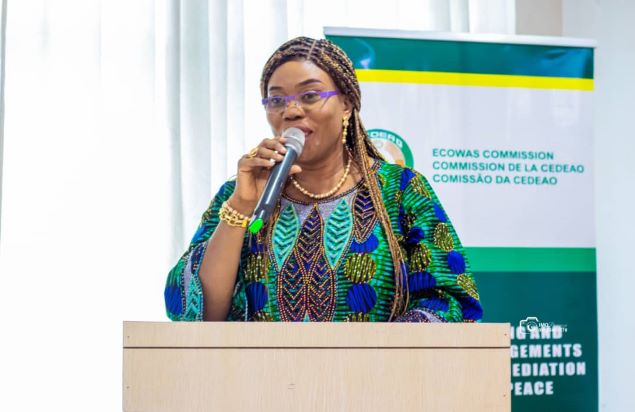
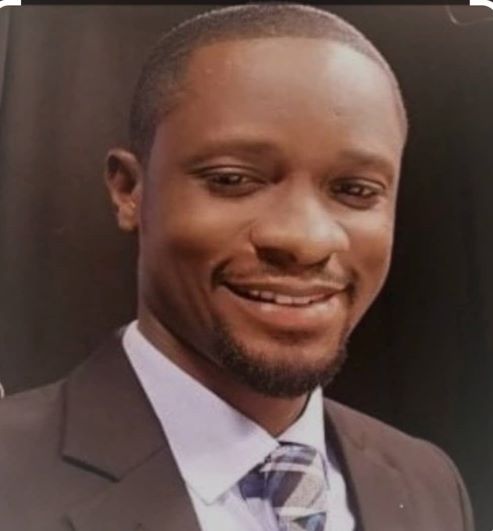
Dr. Onyinye Onwuka (Left) and Mr. Fidel Amakye Owusu (Right)
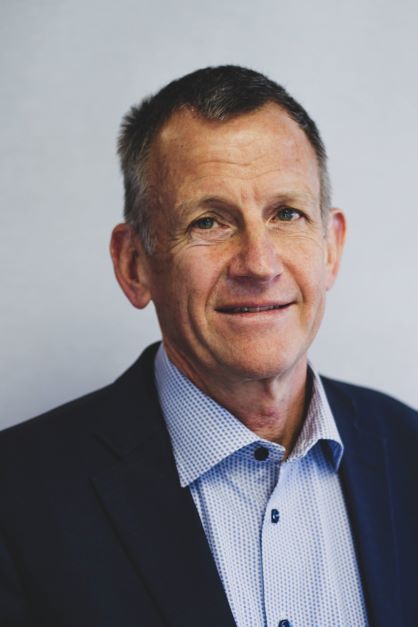
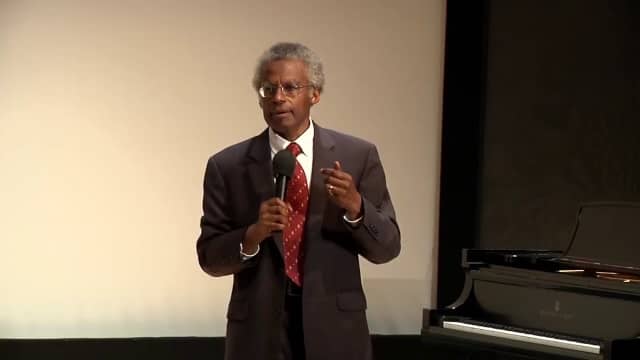
Dr. Jakkie Cilliers (Left) and Mr. Dennis Speed (Right)
Onwuka highlighted other forms of conflict including religious crisis, political instability and perhaps the resurgence of authoritarianism, proliferation of small arms and light weapons, and border conflicts. According to her, “we have seen weak governance, corrupt judiciary, legislature and non-inclusive governance in places where there is a democracy”. She described the AU as an attempt for an African solution to an African problem but it has not effectively proffered solutions.
She continued: “Just behind us, the Sudanese conflict has seen the failure of the AU and regional organisations to administer some level of mediation and support, to ensure that the warring factions come to the negotiating table. Instead, we have to go to the Saudis, and to the Americans-all these are outside interests. How do we know if those fanning the amber of what’s going on in Africa are the ones posing as our potential mediators? So, if you look at the paradox, you will ask yourself what is the African solution to the African problem”, she further said.
In 2016, the AU launched a campaign to “silence the guns by 2020”, but conflicts and violent extremism persisted forcing the organisation to extend the campaign to “silence the guns by 2030”. Onwuka called for action, noting that there is not much time before 2030.
Speaking further on the conflicts confronting the continent, Mr. Fidel Amakye Owusu, Associate, and Senior Conflict Analyst, at Conflict Research Consortium for Africa, warned that the current crisis in Sudan is one of the most dangerous and consequential conflicts akin to Libya before the fall of Muamar Ghadafi. He said the militants have already begun recruiting fighters from Nigeria, volatile regions of the Sahel and Africa.
“Just behind us, the Sudanese conflict has seen the failure of the AU and regional organisations to administer some level of mediation and support, to ensure that the warring factions come to the negotiating table. Instead, we have to go to the Saudis, and to the Americans-all these are outside interests.”
–Onwuka
He said the clash between the powerful paramilitary group, the Rapid Support Forces (RSF) and the regular Sudanese Armed Forces (SAF) could destabilise West Africa and congruent regions because Sudan is surrounded by seven countries including Libya, the Central African Republic, Chad, South Sudan, Eritrea, and Ethiopia all of which are rocked by one conflict or the other including Egypt that is also facing its own in the form of ISIS in Sinai.
“With porous borders, anything can happen”, he said.
“Already, General Dagalo, the leader of the RSF has recruited a lot of people from Nigeria, and Mali. If there is peace, these youths will come back with weapons and experience in warfare, which can add up to the problem West Africa already has “, he warned.
Economic crisis and minuscule global influence
In addition to conflicts, Africa suffers from diverse economic challenges, including its limited share in global trade and declining contribution to the global GDP. The rise of Asian economies, particularly China, has shifted the economic balance, necessitating Africa’s pursuit of growth, stability, and development. Dr. Jakkie Cilliers: Chairperson of the Board as well as the Head of African Futures & Innovation, Institute for Security Studies (ISS Africa), also highlighted the need for Africa to diversify its economic partnerships, foster knowledge transfer, ensure transparency in government contracts, and resist political conditionality and instability. He emphasised the importance of growth, stability, and development in reducing poverty and addressing the continent’s economic disparities.
A 2021 UNCTAD report shows that the continent is responsible for only 3 percent of global trade, 15% intercontinental trade, 2.84 percent of global GDP, and facing a steady decline in contribution to global trade.
While reeling statistics from the ISS 2023 report titled “Africa in the World“, Cilliers projected that the economic totem is shifting towards Asia, and by 2034, China would overtake the US as the single most powerful country in the world. On the other hand, Africa remains a small player in the global arena despite its large population.
He revealed that 171 million Africans could fall into extreme poverty in a growing world, 127 million in a sustainable world, and 539 million in a world at war.
“What Africa needs is growth, stability, and development, but not all African leaders are committed to national development. We need to relentlessly pursue our interests including considering Chinese investment, insist on knowledge transfer like the Chinese have done, institute full transparency on all government contracts, and resist political conditionality”, he urged.
But it is not all gloom for the AU, the continent through the organisation has recorded some strides, noted Mr. Dennis Speed, the initiating member of the Schiller Institute. Speed gave some historical accounts on the establishment of AU, which birthed several regional economic communities such as ECOWAS, the Southern African Development Community (SADC), and the East African Community (EAC), along with several others.
“Already, General Dagalo, the leader of the RSF has recruited a lot of people from Nigeria, and Mali. If there is peace, these youths will come back with weapons and experience in warfare, which can add up to the problem West Africa already has…”
–Owusu
It was also stressed that the Africa Peace and Security Architecture of the AU has also made some progress in resolving some issues. For instance, it intervened in the crisis in Ethiopia when Nigeria’s former president Olusegun Obasanjo and President Uhuru Kenyatta brokered peace; and the dispute for the Bakassi peninsula between Nigeria and Cameroon. Speed however, advised Africa to champion its own independent course without following the dictates of the US-led world order and Western countries.
But, despite these, analysts say there is still lagging on many fronts.
Earlier in his opening remarks, Convener of the Webinar series, Mr. Senator Iroegbu, opined that Africa is yet to take its rightful place at influencing world issues and determining the order of global affairs.
“Africa has to step up on the global stage as a lot has been happening that shows that Africa is yet to take its rightful place”, he said.
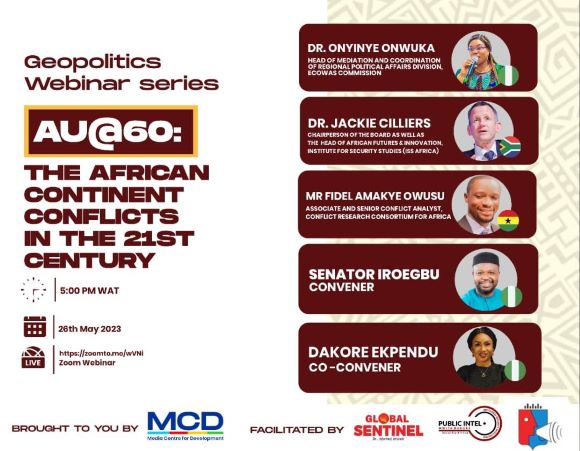
Iroegbu who is the Editor-In-Chief of Global Sentinel, also used the opportunity to call for collaboration and partnership for the geopolitics webinar series, noting that “combining our resources and knowledge, we can shed light on the complex geopolitical landscape and its implications for Africa, promoting informed decision-making and constructive dialogue”. He emphasised the significance of collaborative initiatives in today’s interconnected world, promoting informed decision-making and constructive dialogue
According to him, as the world grows increasingly interconnected, the Geopolitics Webinar Monthly bridges the gap between global events and their local impact. He stressed that through the partnership between Global Sentinel, Public Intel Security Africa and other willing organisations, participants can expect a wealth of knowledge, diverse perspectives, and a deeper understanding of the intricate geopolitical dynamics shaping Africa and the world.
In the same vein, the Co-convener, Ms. Dakore Ekpendu, expressed enthusiasm for the collaboration, highlighting the webinar’s value in facilitating discussions on critical geopolitical issues and their implications for Africa.
Ekpendu who is the CEO of Public Intel Security Africa, said: “The Geopolitics Webinar Monthly provides an invaluable platform for policymakers, analysts, and scholars to delve into critical geopolitical issues and their African ramifications.
“Our partnership with Global Sentinel allows us to bring together diverse perspectives and expertise, paving the way for a more informed and nuanced understanding of global affairs.”
Way forward
Speaking on the way forward, Onwuka said that Africa must strategically reposition its interests beyond the concentric foreign policy approach and fashion out a collective vision to address emerging challenges.
” The implication of the lack of collectively harmonising African interest in a time like this is that Africa may continue to be seen as a peripheral continent with no hope of development,” she warned.
Onwuka added that African countries have to rethink a framework for multilateral engagement with global powers and actors, especially at the UN level. She further reminded that Africa needs to strengthen the role of regional organisations to be more strategic than they appear by providing inclusive solutions.
“What Africa needs is growth, stability, and development, but not all African leaders are committed to national development. We need to relentlessly pursue our interests including considering Chinese investment, insist on knowledge transfer like the Chinese have done, institute full transparency on all government contracts, and resist political conditionality.”
–Cilliers
On his part, Cilliers urged for continuous democratisation, good governance and solid economic plans as well as non-aligned relationship in global affairs, urging Africa to maintain cordial relationship with competing powers without taking sides with either the US or China-led world order. But this was countered by Speed who called on Africa to forge closer ties with the China-led BRICS (Brazil, Russia, India, China and South Africa) group than the West , if it hopes to escape from its long years of conflicts and under development.
Also, Fidel Amakye Owusu pointed out that China, the EU, Russia, and the USA are all interested in Africa because of its resources and growing population, stressing the need for African governments to unite in pursuit and projection of its vested interests.
“It is vague to talk about Africa’s interest because Ghana’s interest is different from Nigeria’s interest, and the West and other world powers can exploit these divided fronts to push their agenda. Until Africa comes together and has a better front like the EU, until we put our interest first, we will continue to be exploited “, he concluded.
Also, during the panel discussion, some solutions proffered by participants include the need for Africa to take control of her resources, nationalise her resources, and take solving its problems very seriously. They offered several recommendations for the AU and African countries to navigate the challenges ahead. They emphasised the need for Africa to strategically reposition its interests, strengthen regional organisations, and engage in multilateral diplomacy. Calls for continuous democratisation, good governance, and solid economic plans were echoed, alongside the importance of maintaining non-aligned relationships in global affairs. The webinar also underscored the urgency for Africa to unite, prioritise its shared interests, and seize control of its resources to overcome conflicts and underdevelopment.
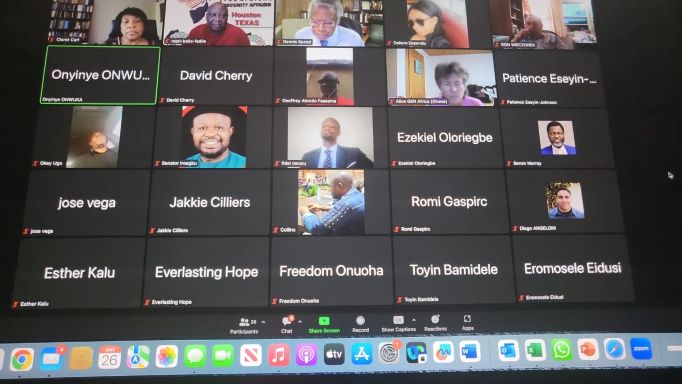
Key Takeaways: There were some vital take home points that the webinar was able to bring to the fore including the fact that addressing the root causes of conflicts in Africa, such as poverty, inequality, and governance challenges, is crucial for sustainable peace and development. It was noted that African nations must prioritise inclusive economic development that benefits all citizens and reduces disparities, while effectively managing and equitably distributing natural resources. Also, that external interference in African conflicts should be minimised, and African nations should unite to protect their interests and engage with the global community as a united front. The AU has made positive contributions but needs to enhance its capacity to address conflicts and crises within member states; while strengthening regional organisations and prioritising African-led solutions to African problems is essential for effective conflict resolution. Africa should establish mutually beneficial relationships with emerging powers, such as China and the BRICS group, while maintaining a non-aligned position in global affairs.
Action Points: At the end of the very brainstorming sessions including the Q&As; African nations were urged to take seriously poverty alleviation, inclusive economic growth, and good governance to address the root causes of conflicts. It was also noted that strengthening resource management and ensuring equitable distribution of resources can help minimise conflicts driven by competition for natural resources. Other action points include African nations to collaborate on how to develop and implement conflict resolution mechanisms, focusing on regional organisations and promoting African-led solutions; the AU should enhance its capacity to mediate and resolve conflicts, through improved coordination, resource allocation, and strategic planning; African nations should advocate for fair trade agreements and protect their resources from exploitation by foreign powers. Also, that establishing knowledge-sharing platforms and partnerships can facilitate informed discussions and generate nuanced understandings of global affairs with African implications.
Recommendations: The speakers and participants also gave various recommendations, which are as summarised to urge African nations to invest in education, healthcare, and infrastructure to foster economic growth and reduce inequality; and that strengthening democratic institutions, promoting transparency, and combating corruption are crucial for good governance and conflict prevention. African nations are also advised to establish strong diplomatic ties with emerging powers and global actors while safeguarding their own interests and maintaining autonomy. Others are that the AU should engage in strategic partnerships with regional organisations and international actors to enhance conflict resolution capacities; increased financial support from African nations and international donors is necessary to strengthen the AU’s resources and operational capabilities. Finally, that efforts should be made to promote intra-African trade, industrialisation, and technology transfer to boost economic development and reduce dependency.
Conclusions
As the AU reaches its 60th anniversary, it faces the crucial task of fulfilling the vision set forth by its founding fathers. Against this backdrop, the webinar highlighted the need for Africa to take charge of its own destiny by addressing the root causes of conflicts, promoting inclusive development, and protecting its resources from external exploitation. The AU’s performance in conflict resolution was assessed, acknowledging achievements but also recognising limitations. Strengthening regional organisations and prioritising African-led solutions were recommended to enhance conflict resolution efforts. The importance of strategic partnerships, knowledge-sharing platforms, and collective action was emphasised to tackle conflicts and foster sustainable development. Ultimately, the key message was that Africa must unite, assert its interests, and engage with the global community as an equal partner to overcome conflicts and achieve its development goals.
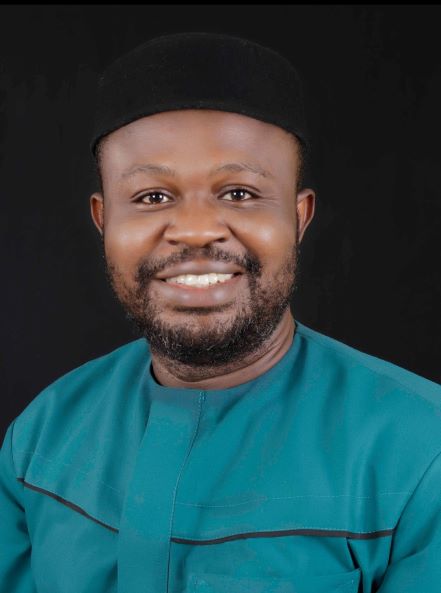
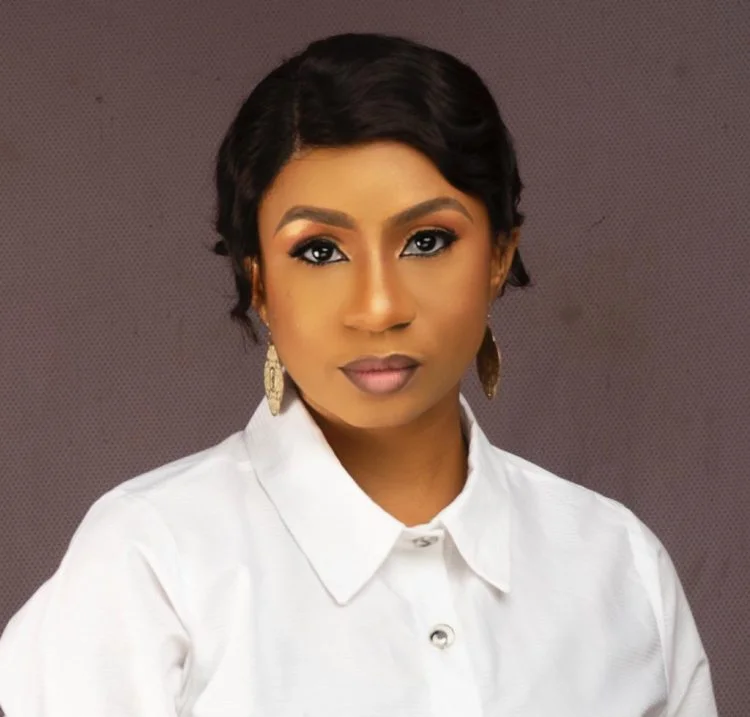
Senator Iroegbu (Left) and Dakore Ekpendu (Right)
Furthermore, participants stressed the importance of addressing the root causes of conflicts in Africa, such as poverty, inequality, and governance challenges. They emphasised the need for inclusive economic development that benefits all citizens and reduces the disparities between the rich and the poor. It was noted that many conflicts in Africa are driven by competition for natural resources, highlighting the urgent need for resource management and equitable distribution.
Another key aspect discussed during the webinar was the role of external actors in African conflicts. Participants expressed concerns about the exploitation of Africa’s resources by foreign powers and called for stronger measures to protect the continent’s interests. They stressed the importance of African nations engaging with the global community as a united front to advance their common agenda and prevent external interference in African conflicts.
“…combining our resources and knowledge, we can shed light on the complex geopolitical landscape and its implications for Africa, promoting informed decision-making and constructive dialogue.”
–Iroegbu
Regarding the African Union’s performance, the speakers acknowledged some positive contributions made by the organisation. The establishment of regional economic communities, peacekeeping efforts, and mediation in certain conflicts were cited as examples of AU’s achievements. However, they also highlighted the limitations and shortcomings of the AU in effectively resolving conflicts and promoting development on the continent.
The speakers stressed the need for the AU to enhance its capacity to address conflicts and crises within member states. They called for greater coordination and cooperation among African nations, as well as strengthening regional organisations to play a more strategic and inclusive role in conflict resolution. The AU was urged to prioritise the African solution to African problems, rather than relying on external actors for mediation and support.
In terms of economic development, participants emphasised the need for Africa to find its own path and pursue its interests on the global stage. They advocated for African countries to establish mutually beneficial relationships with emerging powers like China, as well as the BRICS group, to leverage their economic potential and promote knowledge transfer. At the same time, they urged Africa to maintain a non-aligned position in global affairs and avoid being caught in the rivalry between the US-led world order and China-led initiatives.
The webinar concluded with a call for action and collaboration. Participants emphasised the importance of African countries coming together, setting a collective vision, and harmonising their interests to address conflicts and promote sustainable development. They highlighted the significance of partnerships and knowledge-sharing platforms, such as the Geopolitics Webinar Monthly, in facilitating informed discussions and generating nuanced understandings of global affairs with African implications.
In summary, the webinar provided a critical analysis of the African Union’s performance in fulfilling the vision of the founding fathers. While recognising some achievements, experts highlighted the challenges and limitations faced by the AU in addressing conflicts and promoting development. The discussions called for a rethinking of Africa’s strategies and engagements with global powers, as well as the need for inclusive economic development, resource management, and stronger regional cooperation. The overall message was that Africa must take charge of its own destiny, unite on the global stage, and pursue its interests to overcome conflicts and achieve sustainable development.
“The Geopolitics Webinar Monthly provides an invaluable platform for policymakers, analysts, and scholars to delve into critical geopolitical issues and their African ramifications.”
–Ekpendu

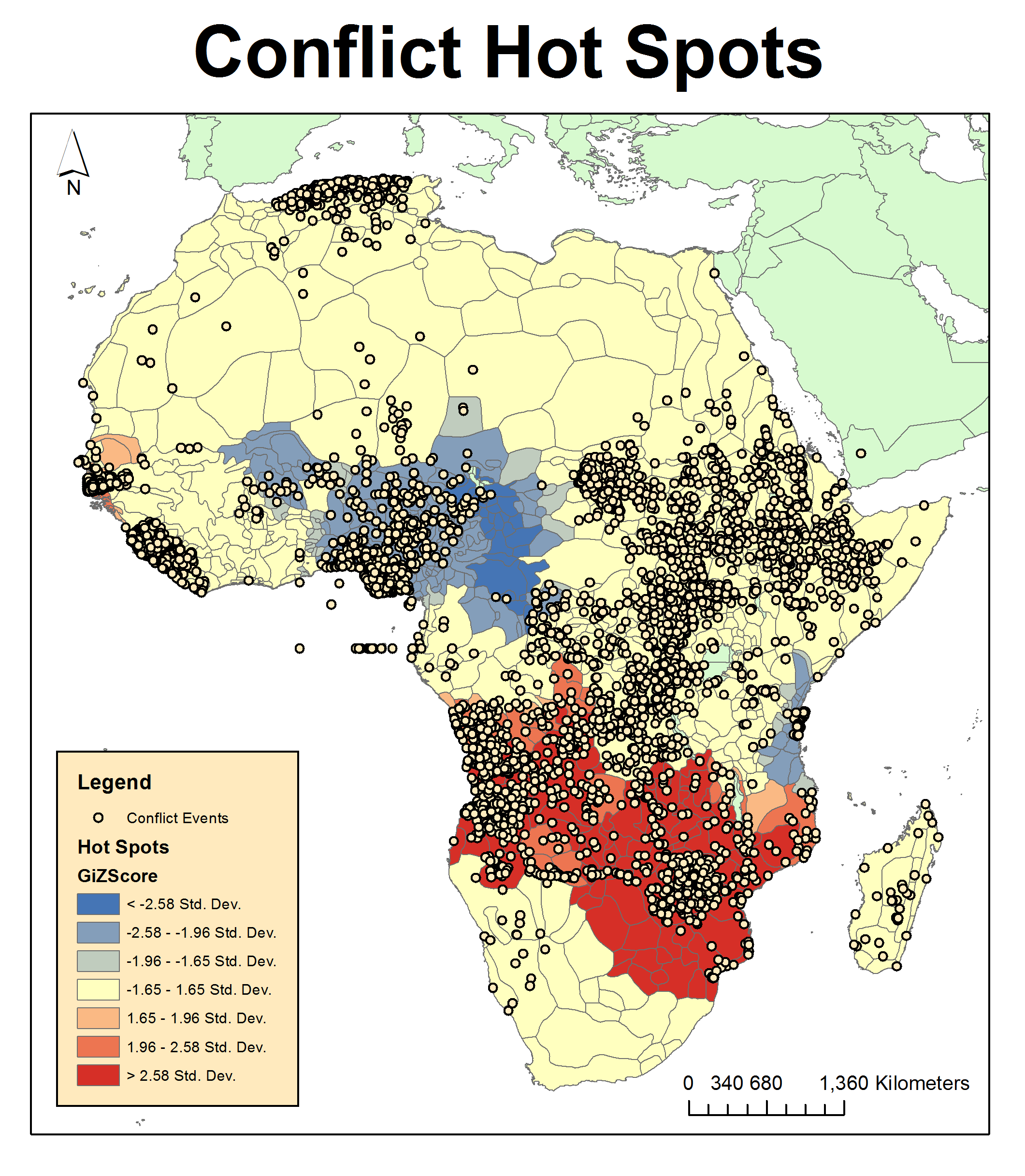
Thank you for this rich document. It’s really a Road Map for AU to improve on its performance so far. This type of research work should be supported by the AU and African leaders.
Thank you for the efforts and sacrifices.
Luka BOKKO
[…] inaugural edition of the Geopolitics Series, aptly themed “AU@60: The African Continent Conflicts in the 21st Century,” was a tribute to the 60th Anniversary of the African Union. This milestone event gathered […]